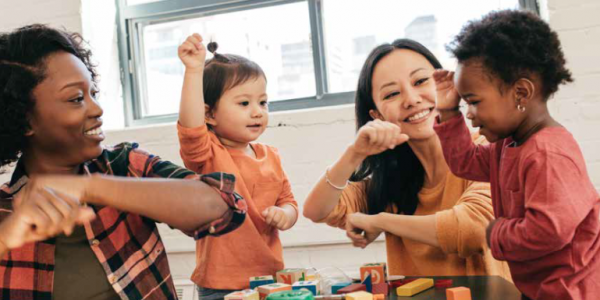Daily News for Curious Minds
Be the smartest person in the room by reading 1440! Dive into 1440, where 4 million Americans find their daily, fact-based news fix. We navigate through 100+ sources to deliver a comprehensive roundup from every corner of the internet – politics, global events, business, and culture, all in a quick, 5-minute newsletter. It's completely free and devoid of bias or political influence, ensuring you get the facts straight. Subscribe to 1440 today.
💛 A Little Click Goes a Long Way
We carefully choose the ads in this newsletter to make sure they’re family-friendly and relevant. When you click on them, you’re helping keep Playful Parent free and thriving—so thank you for supporting us with just a tap or two!
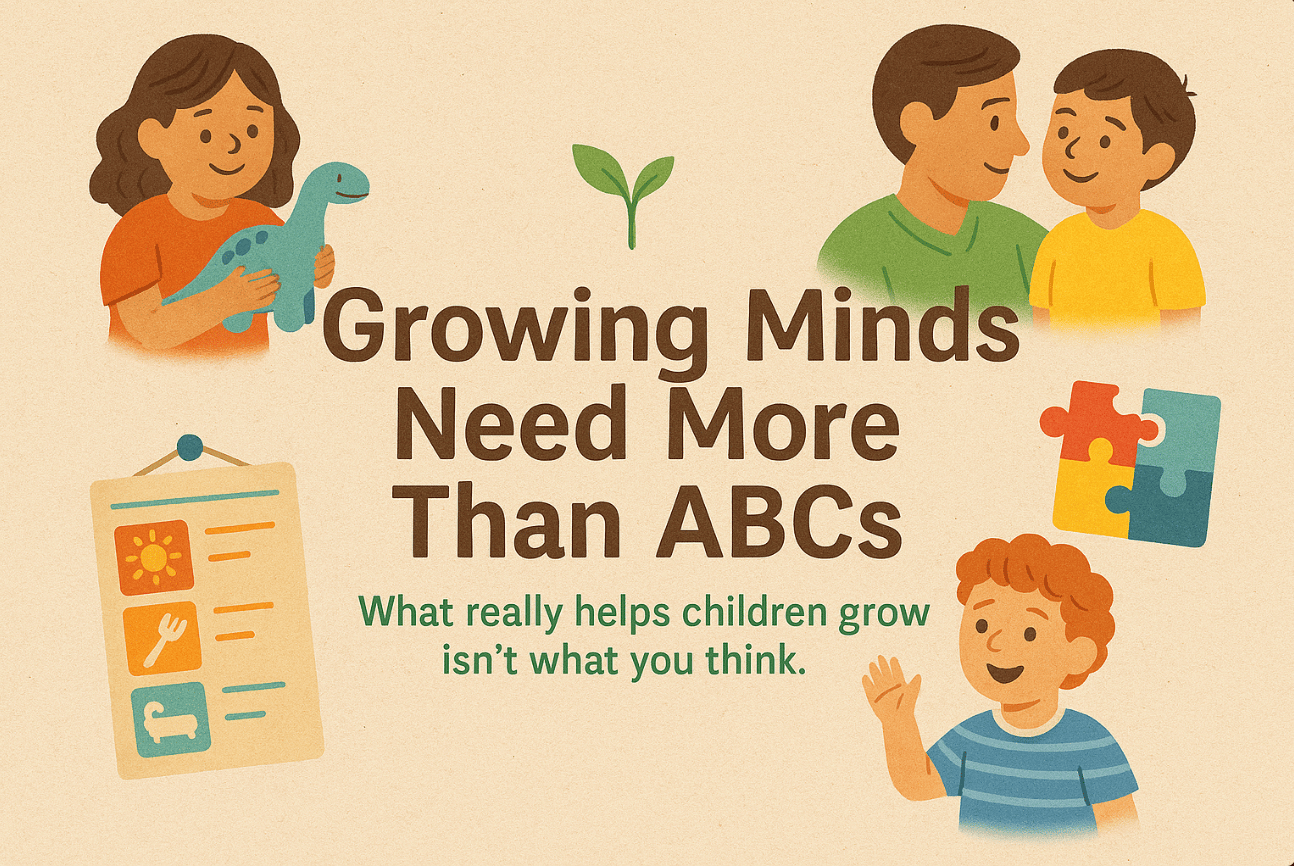
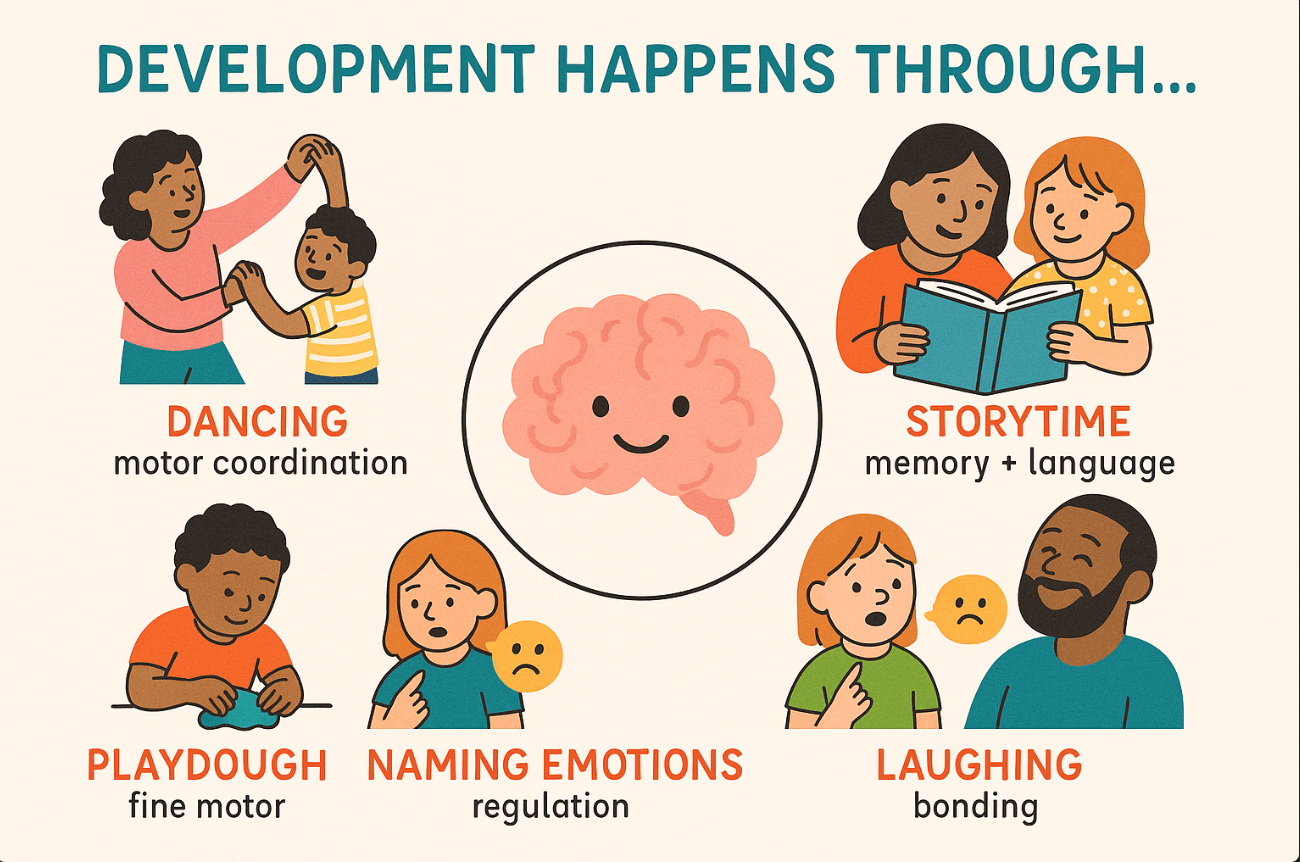
🌱 What Really Helps Kids Grow (It’s Simpler Than You Think)
A Quick Read for Caregivers Who Are Tired of the Noise
We’re flooded with messages telling us how to “stimulate” our child’s brain, how to “maximize” early development, or how to give our little one a “head start.”
It’s enough to make any parent feel like they’re already behind.
But here’s the truth backed by decades of developmental research:
✨ The most powerful ingredients for growth are ordinary, everyday, and already inside your home.
Let’s walk through what really supports early development — and what we can gently let go of.
✅ What Helps Kids Grow
These aren't flashy or trendy — but they are deeply effective. Think of them as the invisible scaffolding under your child’s development.
1. Play
Unstructured, imaginative play builds more than smiles. It’s a workout for the brain.
🧠 What it builds:
Problem-solving skills
Executive function
Emotional processing
Social negotiation (especially in group play!)
📌 Try this: Let your child lead the play. When they say “you be the baby,” go with it! Let the imagination unfold.
2. Connection
Children grow in relationship. A loving, attuned caregiver provides the safe base from which kids explore the world.
🧠 What it builds:
Secure attachment
Emotional regulation
Confidence and self-worth
📌 Try this: Aim for little moments of connection — a shared snack, eye contact during toothbrushing, or a quiet cuddle after a hard moment.
3. Language
You don’t need flashcards or fancy vocabulary. Just talk to your child. Narrate your day. Describe what they’re doing. Be silly with words.
🧠 What it builds:
Vocabulary and early literacy
Listening and attention
Back-and-forth conversational skills
📌 Try this: Turn routines into “talk time.” Describe what you’re doing during diaper changes, or sing a silly song while washing hands.
4. Routines
Predictability helps children feel safe, which helps them learn. Routines offer calm and structure in a big, confusing world.
🧠 What it builds:
A sense of safety and security
Independence and responsibility
Regulation and rhythm
📌 Try this: Keep one part of the day (like bedtime or breakfast) consistent. Use visual charts or songs to support transitions.
🧯 What Doesn’t Help (And Might Actually Hurt)
Even with the best intentions, we can sometimes get pulled into patterns that don’t serve our children (or us).
🚫 Overscheduling
Back-to-back enrichment classes leave little room for creativity and rest. Kids need white space in their day.
👎 What it disrupts:
Free play
Spontaneity
Autonomy and intrinsic motivation
🚫 Screen Overuse
Not all screen time is bad — but excess passive viewing can replace critical early experiences.
👎 What it disrupts:
Movement and motor development
Real-world sensory input
Relationship building
🚫 Constant Achievement Pressure
Focusing too much on milestones, grades, or performance can create anxiety and a fear of failure.
👎 What it disrupts:
A child’s intrinsic love of learning
Resilience and risk-taking
Emotional safety
🚫 Caregiver Stress and Guilt
Kids are sensitive to the emotional climate around them. If we’re running on fumes or weighed down by guilt, they feel it too.
👎 What it disrupts:
Co-regulation
Emotional availability
Joy in parenting
💛 A Gentle Reframe
You don’t need to be a teacher, a therapist, or a Pinterest-perfect parent.
What children need most is a steady presence, not perfection. A curious adult who shows up, again and again — even after the meltdowns, even when it’s hard.
🌈 What helps children grow is connection. Playfulness. Trust.
Not pressure, perfection, or a “head start.”
You are enough. Your love is the curriculum.
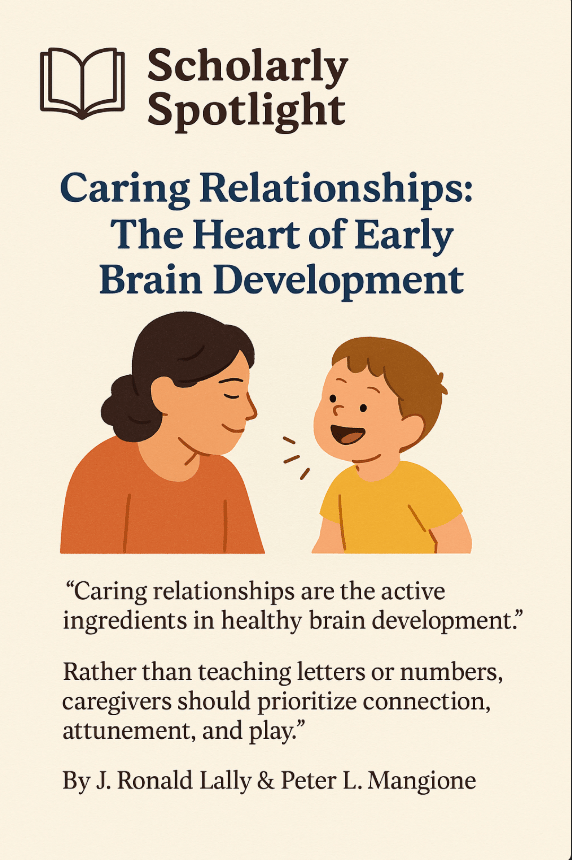
Want more fact based evidence? Check out this interesting read!
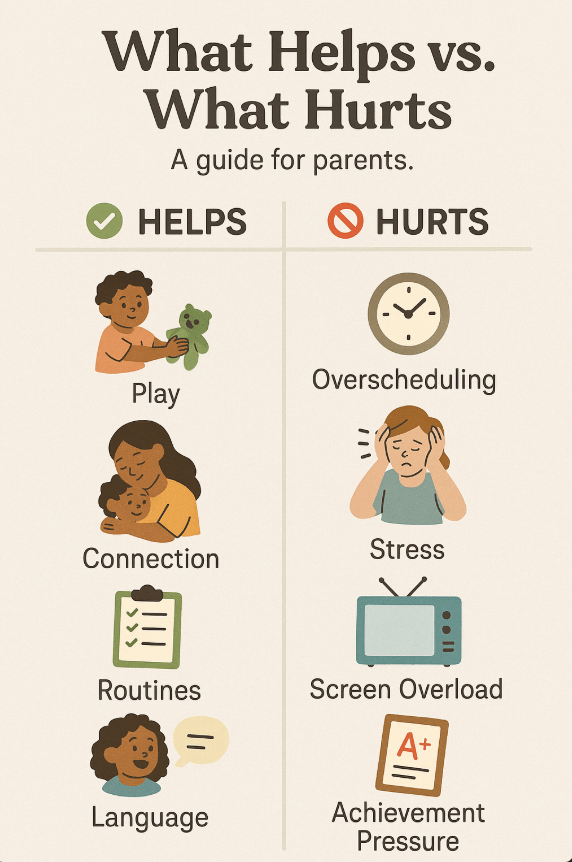
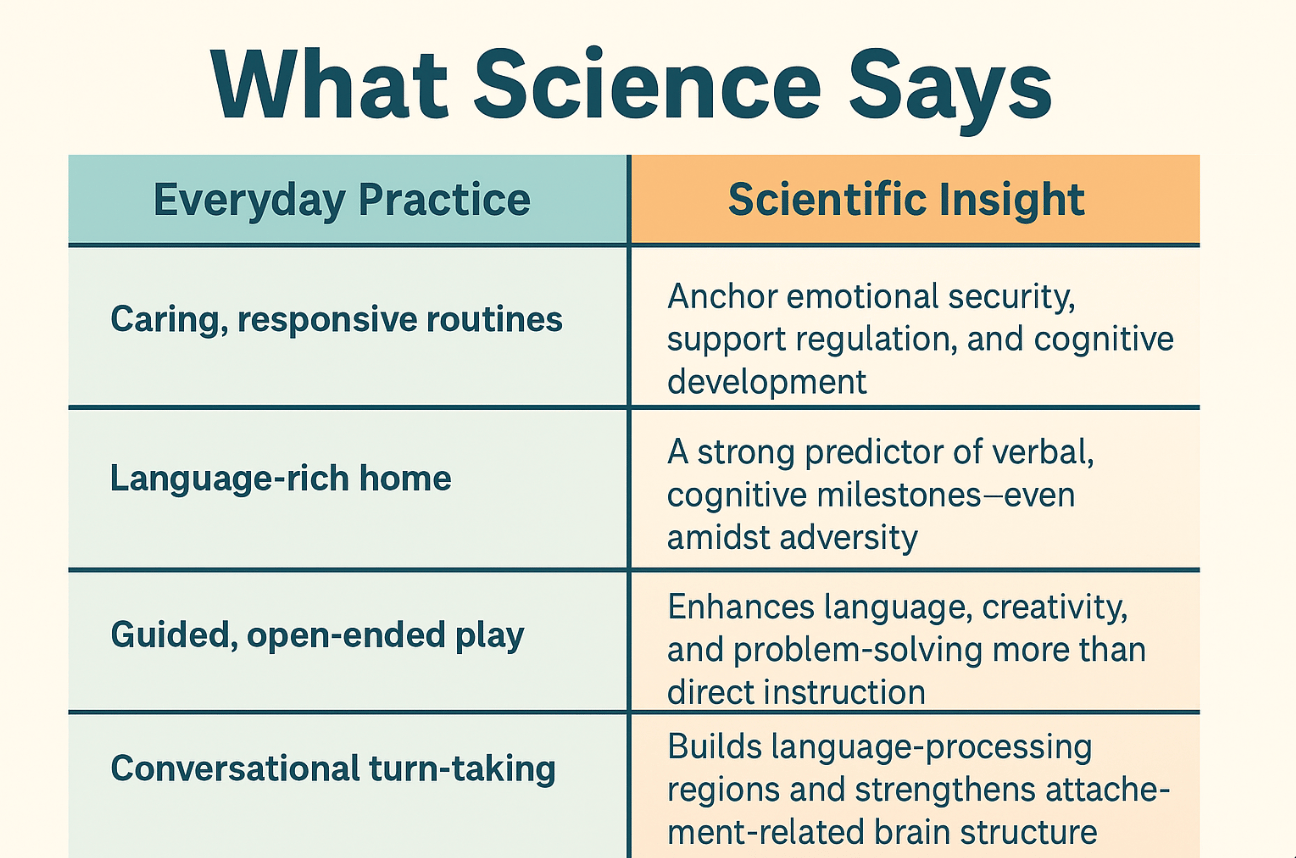
🌿 Reflection: The Quiet Power of Everyday Moments
It’s easy to feel like you need to be doing more — teaching more, buying more, being more.
But real growth doesn’t come from pressure. It comes from presence. From the way you hum while brushing hair. From the stories you tell before bed. From the quiet patience when your child’s emotions spill over.
Those moments may not look like “achievement.” But they are shaping the architecture of your child’s brain — and the core of your relationship.
So if all you did today was show up with love and curiosity,
you did enough.

